“The Problem With Ethiopia Is Ethnic Power-sharing”
- Par (é) Jean-Paul KOMON, Le président du CNAMSMD,
- 13 avril 2018 07:18
- 0 Likes
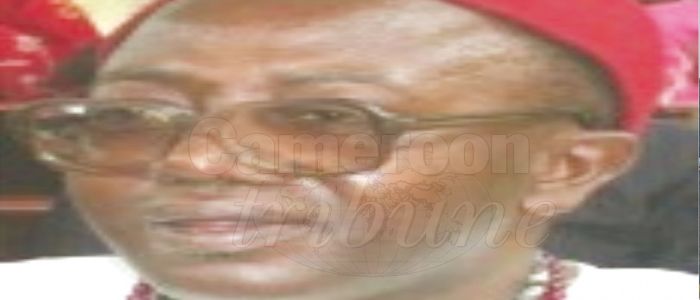
Prof. Yenshu Emmanuel Political Sociologist, University of Buea.
What explains the political and social turmoil in Ethiopia in the past three years?
Ethiopia is the only African nation that was not partitioned and colonized by any European power. It was a small empire for long until Eritrea, the former Italian colony, was joined to it after World War II. As an empire, Ethiopia was more stable because there was greater understanding and cohesion amongst the people. When the Dergue military junta overthrew Emperor Haile Selassie in 1974, Col. Mengistu Haile Mariam later became its leader. Then began the domination of the Amhara ethnic group until Col. Mengistu was overthrown in 1991 by the Ethiopian People's Revolutionary Democratic Front, EPDRF Tigrean-led political coalition. At the same time, Eritrean broke away to form an independent nation.
The advent of EPRDF and Tigrean leadership in recent years led to social discontent and complaints amongst the Oromo majority ethnic group (who make up 40 per cent of the population) of marginalization and being kept sidelined from power-sharing at the federal level. There were demonstrations and arrests of Oromo people and intellectuals. Though the political prisoners were released at some point, they were soon re-arrested as the unrest continued.
So, the problem in Ethiopia, especially in the past three years, has been that of ethnic balancing in terms of power-sharing. Finding a solution is not by replacing one ethnic group with another. Once the leadership belongs to a particular ethnic group that lasts long in power, before you know it, others will start complaining of marginalization.
After the resignation of Haile Mariam Desalegn in February, Abiy Ahmed was sworn in on April 2, 2018 as PM. What is so particular about his election and what are the internal and foreign challenges facing his administration?
Dr Abiy Ahmed comes from a neutral ethnic group, the Oromo, though he has an Amhara Christian mother and grandmother, and an Oromo Moslem father and grandfather, like himself. Oromos have mainly been at the centre of the recent turmoil in the country, complaining about marginalization. Though only 43, Abiy Ahmed might have the solution to Ethiopia’s perennial problem of power-sharing between the ethnic groups. Ethiopia is a federation with regional autonomy. This gain should not be taken away.
A system should be found to sharing central power so that no ethnic group feels marginalized. Moreover, ensuring internal peace and stability will enable the country to better face foreign challenges. Once a nation resolves its internal cohesion problems, it becomes easier to face external aggression. But when a nation is weakened because of internal challenges that are not quickly resolved, foreign powers take advantage of the situation to interfere.
Take the ca...
Cet article complet est réservé aux abonnés
Déjà abonné ? Identifiez-vous >
Accédez en illimité à Cameroon Tribune Digital à partir de 26250 FCFA
Je M'abonne1 minute suffit pour vous abonner à Cameroon Tribune Digital !
- Votre numéro spécial cameroon-tribune en version numérique
- Des encarts
- Des appels d'offres exclusives
- D'avant-première (accès 24h avant la publication)
- Des éditions consultables sur tous supports (smartphone, tablettes, PC)






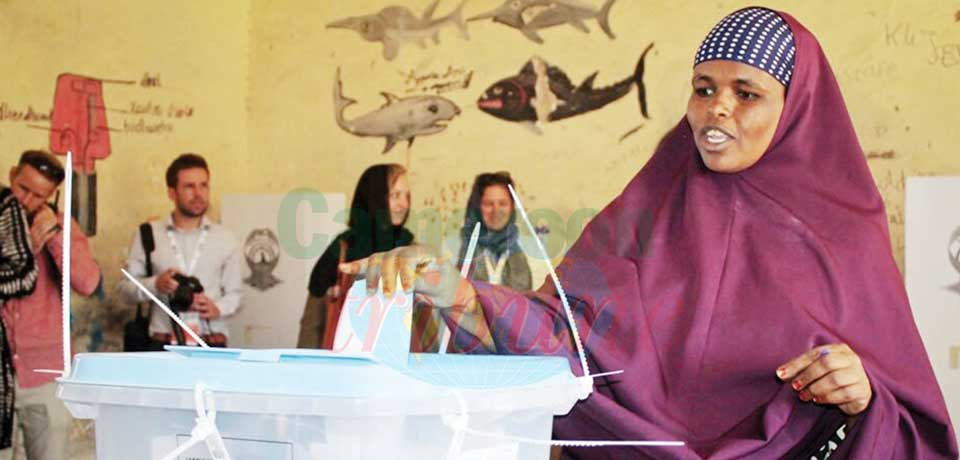
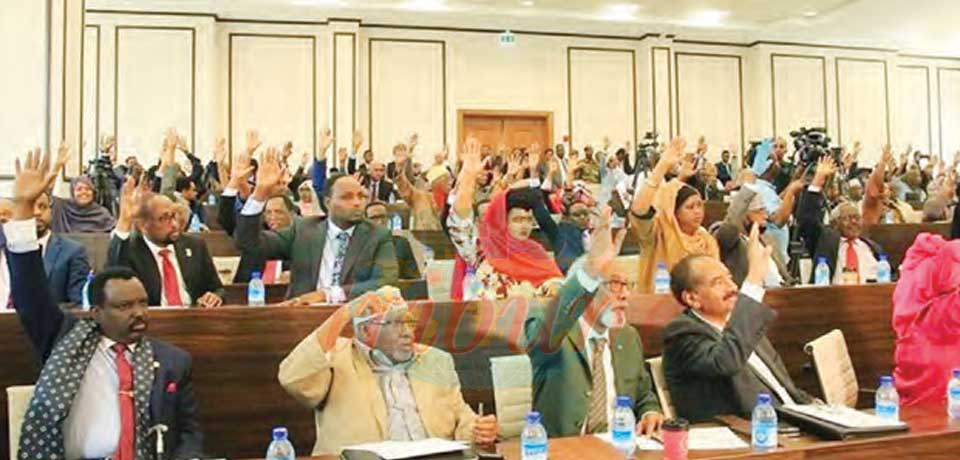
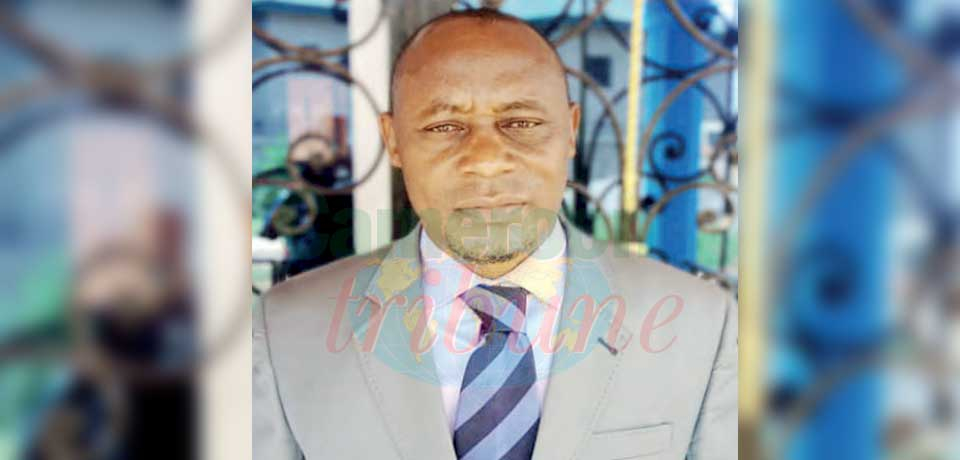
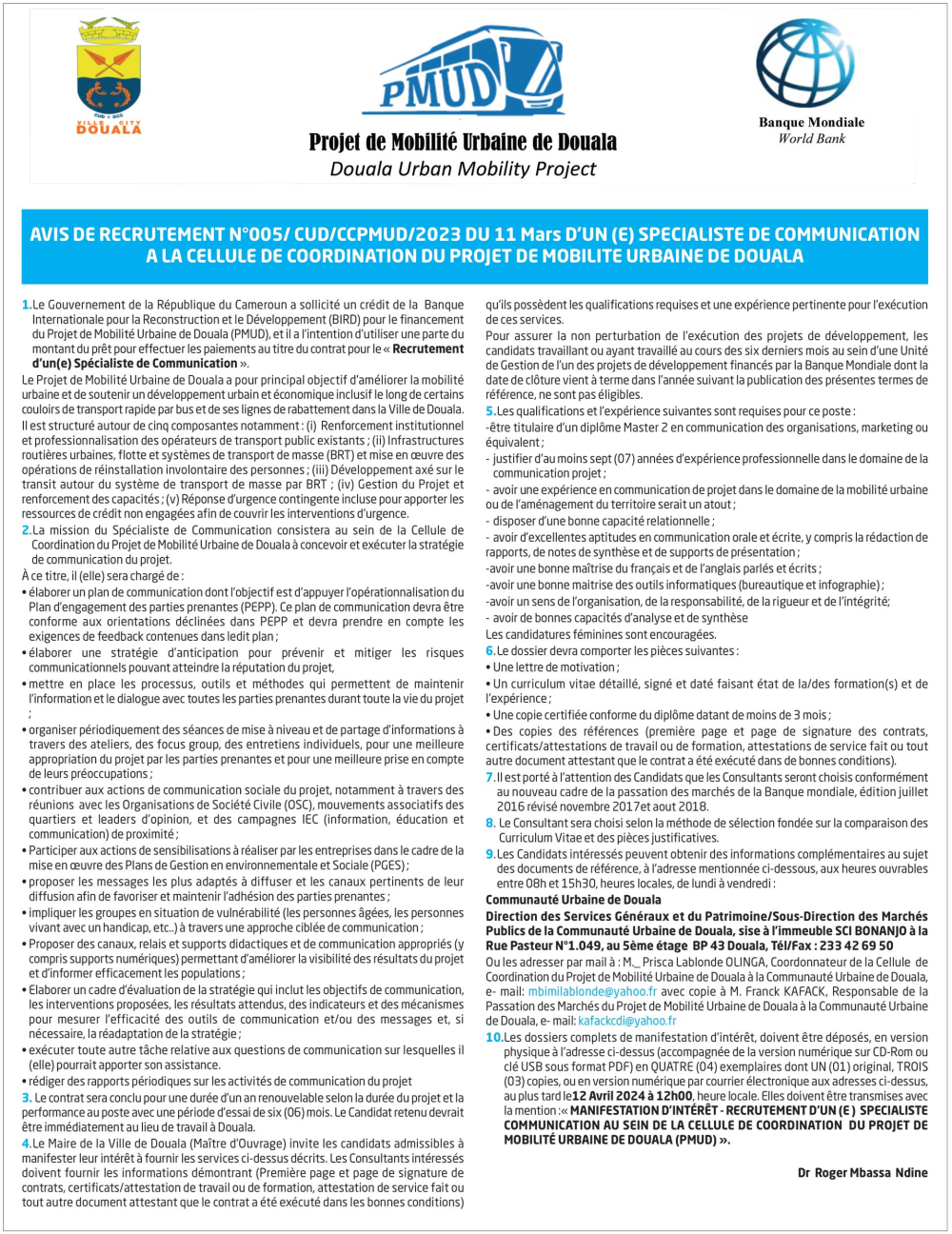
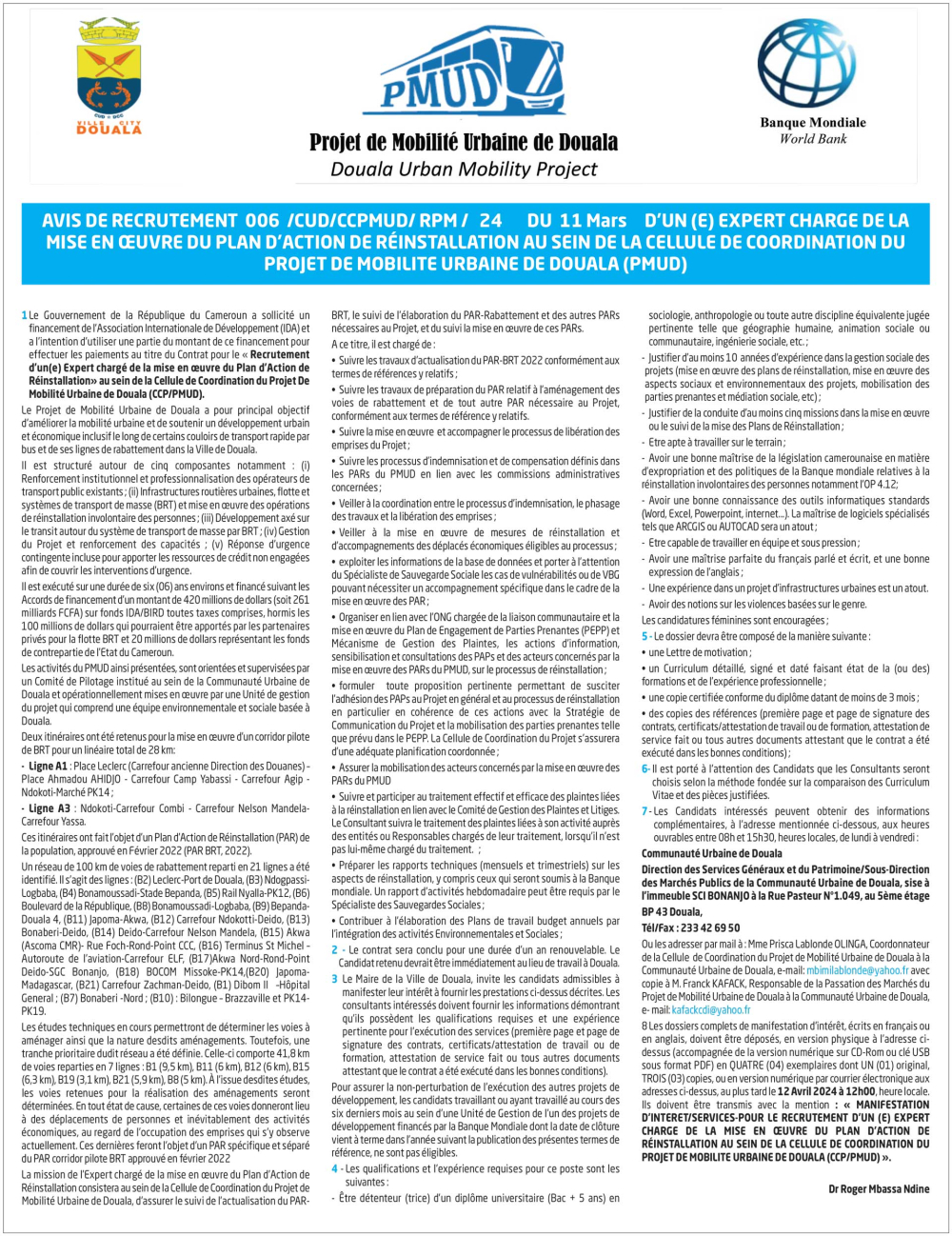





Commentaires